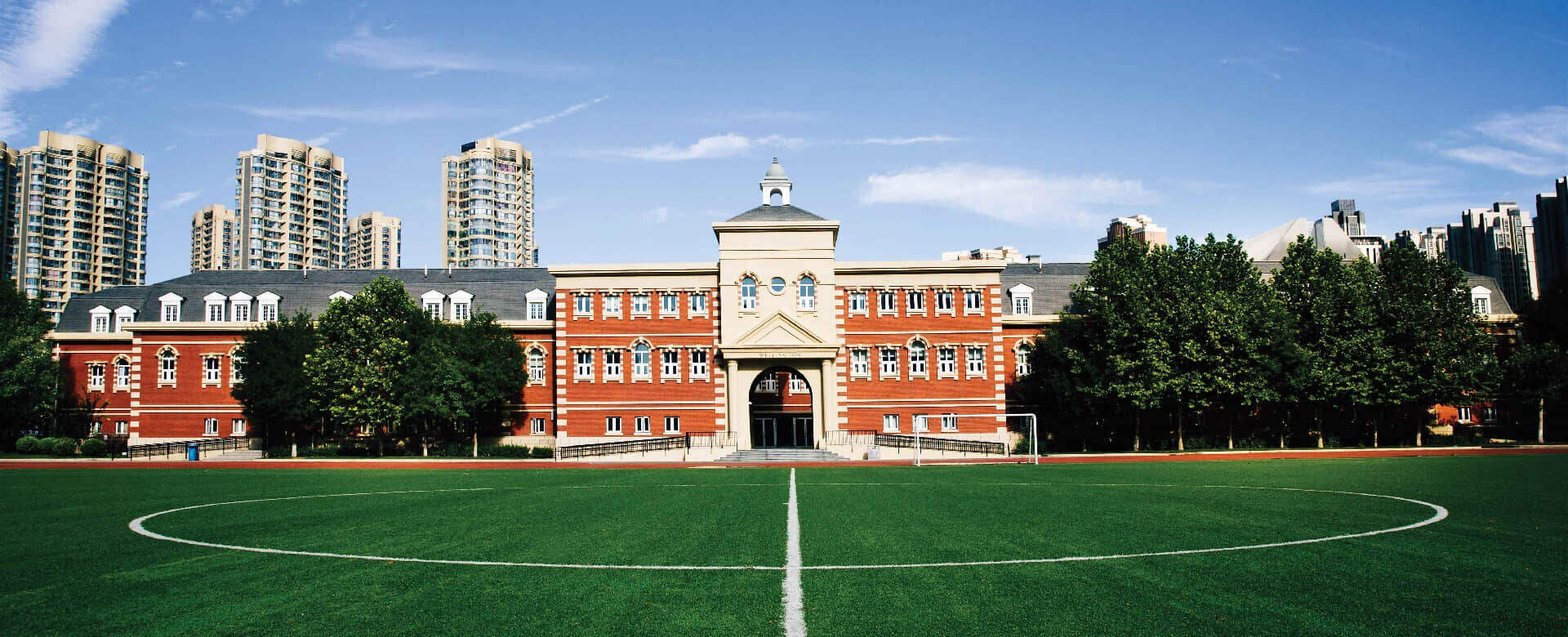A Levels: the path to successful university admission
This year, we have received Oxford, Cambridge, Ivy League offers, and just this month, we have achieved all G5 offers as well as an offer from UCLA.
So how did the school manage to achieve such impressive results? We had the honour to invite Mrs. Jayne Sabio, Head of the Sixth Form and the University Guidance office, to talk about our programme and how an A Level curriculum has helped our pupils at the College receive offers for some of the world’s top universities.


Jayne Sabio
Head of Sixth Form / Head of MFL
Wellington College Tianjin is currently the city’s only international school offering British-style examination qualifications. At 16 years of age, pupils take a raft of 9 or 10 GCSEs, the widely respected assessment framework for young people in Britain, and in the form of the equivalent international version, the IGCSE, across the world. These examinations provide universities with their most accurate predictor of performance as a potential undergraduate; they are recognised as being a more reliable indicator of future success than any of the qualifications currently available for post-16 students because they demand academic flair allied to a need to be highly organised and self-motivated. In this way, they are rightly highly prized by universities across the world, and a clutch of top grades at IGCSE are an invaluable part of a successful application to higher education.

Closely allied to IGCSEs are what are commonly known as A Level, or Advanced Level, qualifications. These are taken at 18 years of age, after a two-year course of study, and admission to universities across the world is largely dependent upon gaining top grades in these exams. In China, as across the world, A Levels are regarded as the gold standard for post-16 qualifications; they offer genuine academic rigour and challenge by allowing students to dig deeper in to their chosen fields of study. According to the findings of the University Admissions Officers Report 2017, A Levels were considered to offer better “in-depth subject expertise” with 94% stating that they developed this “well or very well”, compared to 56% for the IB. The choice of three or four main subjects over a two-year course may seem odd to families used to the IB Diploma (IBDP), Gaokao or AP programmes, all of which encourage breadth of study rather than placing the emphasis on depth. In this way, the A Level, with its unashamed emphasis on academic subjects, mirrors the ways of learning at universities. Recognising that most students at universities across the world will major in one, at most two, subjects, A Levels are designed to give teachers and students the chance to burrow deeper into the subject material, a prospect that the broader post-16 qualifications cannot hope to achieve. Students are also given an excellent grounding in the forms of teaching they will experience at university, with the emphasis placed on developing research skills, fostering an explicit expectation that the best learners will go beyond the curriculum to examine new and exciting concepts and ideas as part of their preparation for university. As the IB Diploma continues its steep decline[1] in popularity among schools in the UK – in 2018, just 110 schools had IBDP candidates, compared to 230 in 2008 – the attraction of a highly specialised, intellectually rigorous qualification like the A Level increasingly makes sense.
[1] https://www.tes.com/news/exclusive-number-schools-using-ib-continues-decline, 26th October 2018
/



An A Level programme is not simply an exam factory, however. It encourages a wide of subject choices which are genuinely optional with no compulsory subjects. In this way, children preparing for a career in medicine, for example, can look to specialise in the core subjects they will need for admission to university – chemistry, maths, biology and physics are typically included in this scenario. At the same time, the open choice available in the A Level programme allows others to focus on specific talents, such as art, music, design and PE, or a language arts/humanities-rich programme of geography, history, economics and English. By allowing students to pursue their particular areas of strength, A Levels help to provide further intrinsic motivation to success.
In addition, the timetable in an A Level curriculum allows time for wider study, often in the form of an Extended Project Qualification (EPQ), which is worth half an A Level and gives pupils the opportunity to produce a piece of work that is truly individual, whether it is a written research report, event or creative artefact. Qualifications such as the EPQ have grown in popularity as schools recognise the value they add to a young person’s intellectual and organisational preparation for life beyond school. Moreover, with curriculum time available to tailor-make programmes of study based on individual needs rather than exam board diktat, those students who need more time for English language development and support can find this in our IELTS and TOEFL programmes. Teachers work in close collaboration with their colleagues in mainstream subjects to ensure that all our learners have bespoke language targets and guidance in order to plot their route to successful language acquisition.

There is a common misapprehension that, because A Levels are a British qualification, they are only attractive to universities in the UK. This is far from the truth. A Levels, supported by good SAT/ACT results, are universally recognised as among the most rigorous courses available anywhere in the world, and universities and colleges from across the US, Canada, Europe and Australasia accept applicants with A Level qualifications.
Our pupils here at Tianjin have gained offers from top universities in the US, such as The University of Pennsylvania and Cornell University as well as Oxford, Cambridge and all other G5 universities in the UK alongside offers from other top universities in Canada and Hong Kong. As thousands of young people look to pursue their dreams of university education in the US or elsewhere, the corresponding enthusiasm of such universities to accept them has also increased. All the universities and colleges at our recent International University Fair were unequivocal in their admiration for A Levels as a route into higher education, and many offer credits in their undergraduate programmes for students with strong relevant A Level results. Furthermore, A Levels are attractive to universities, who find that applicants with A Levels often come better prepared with the specialist levels of knowledge that universities seek to develop.

The options in post-16 qualifications for parents and young people are enviable, with strong programmes to suit all learners. With almost 70 years of history behind them, though, A Levels have stood the test of time and have emerged as among the most respected and admired.
For more details of our A Level options, and other academic programmes available at Wellington College International in Tianjin, please contact the Admissions’ Office (admissions.tianjin@wellingtoncollege.cn).

//
Thoughts from current pupils
years 12 and 13
Eric
“I found that the A Level chemistry course was more appropriate for me as it covered topics such as the periodic trends of Group II metals and Halogens (such as reactions involving halogens as oxidizing agents) which helps in predicting chemical reactions. The A Level syllabus also covers more organic chemical reactions, as well as involving more synthetic routes, which I felt benefitted the study of Biochemistry.”
Nicole
A-levels are great for students who have a clear idea of what they would like to pursue in the future. Unlike the International Baccalaureate programme where it is mandatory to take six subjects encompassing different areas of study such as languages, humanities, sciences, mathematics, and art, A-levels are more focused. The greatest advantage is that you are able to choose a combination of any three to four subjects that are specific to your interest. A-levels provide in-depth subject expertise and equip students with skills and a solid foundation of knowledge that are essential for higher education.
Rose
A major benefit of studying A-levels is that you have freedom in choosing your subjects, allowing you to study the subject area you find the most interesting in great depth. Taking no more than 4 subjects also gives you more independence and flexibility over your study. You can use the time you have gained by studying fewer subjects in making your understanding of each subject thorough, or on carrying out an independent research project on a topic you find especially interesting.
Moreover, most of the International A-level subjects offer students to take half of the course (A/S exam) in year 12, which allows the students to handle the exam pressure over two years instead of one.
Marcos
A-Level has been created with specialisation in mind, allowing for a smooth transition into undergraduate programmes. Students that are confident with their degree choice/career path would therefore benefit from this curriculum more so than a student who is perhaps uncertain or wishes to explore their options. This latter type of student would be more suited to IB. Both curriculums cater to different interests and, in extension, to different individuals. Both curriculums enjoy international recognition, and are both globally regarded as higher education equals. IB is notorious for it's cumbersome workload given the sheer amount of subjects chosen. A-Level also has a significant workload but has no where near as many branches extending from the core subjects chosen by the student (No IA, optional EPQ, No CAS etc.)
Ted
There are two benefits of taking A level FM. Firstly A level further maths accounts for another independent subject so one can essentially get two A level grades by doing AL maths and FM. For students interested in mathematics, doing this course can ease the pressure of having to study another subject. Secondly, the further pure 2 module contains a great deal of "university mathematics" such as linear algebra and harder differential equation techniques, which prepares one for the future studies.
Bela
A Levels bear more likeness to
the structure of a university course, and go into greater depths that I feel equip you better for the
teaching and learning styles of higher education. Only having taken three subjects, I was able to undertake
an extended project qualification and look into my chosen degree subject in greater academic depth-
something I would not have had the opportunity to do if juggling the breadth of the IB course.
Well-roundedness is an important quality, however the IB course introduces unnecessary studies for a student with interests and skills only in a specific academic field. I think that GCSEs are sufficient in establishing this foundational knowledge, and that A Levels make sense as a next step- allowing students to tailor their education to their own talents, interests and future plans.




 Channel
Channel 
 Linkedin
Linkedin  Facebook
Facebook  Ins
Ins 







